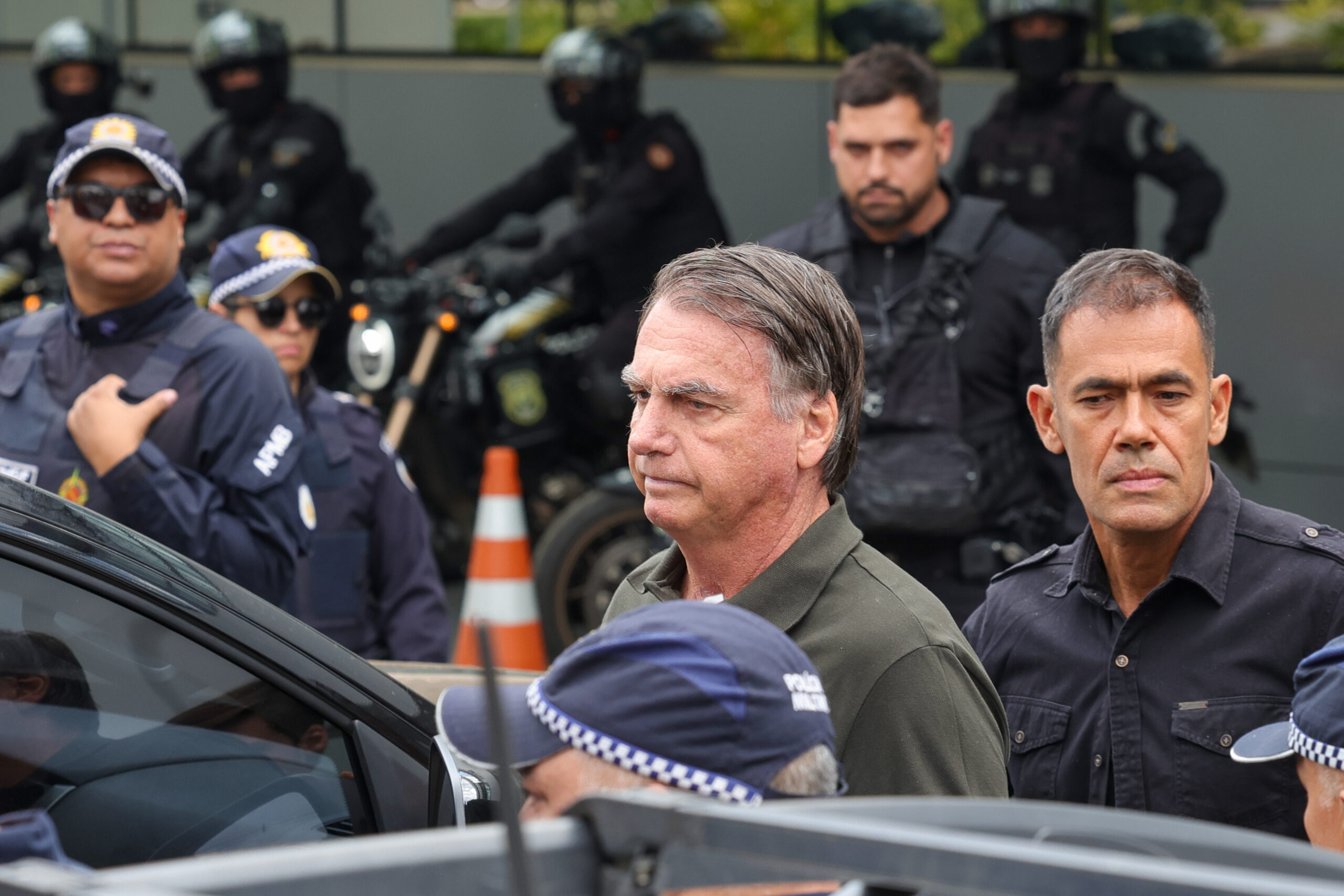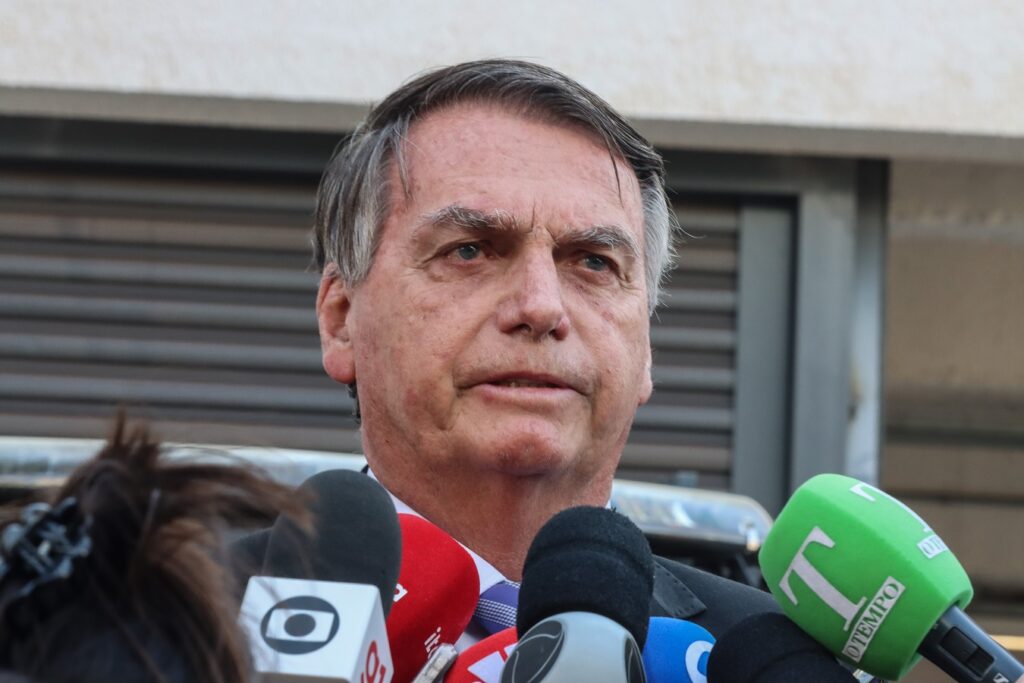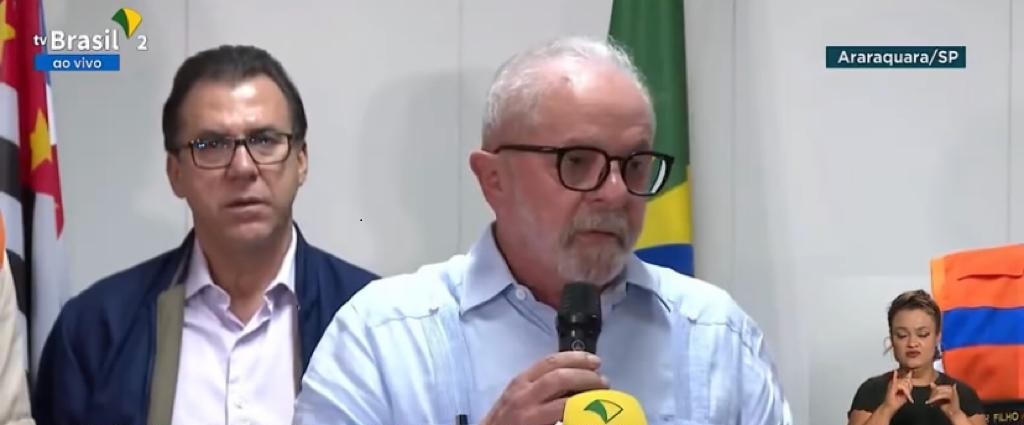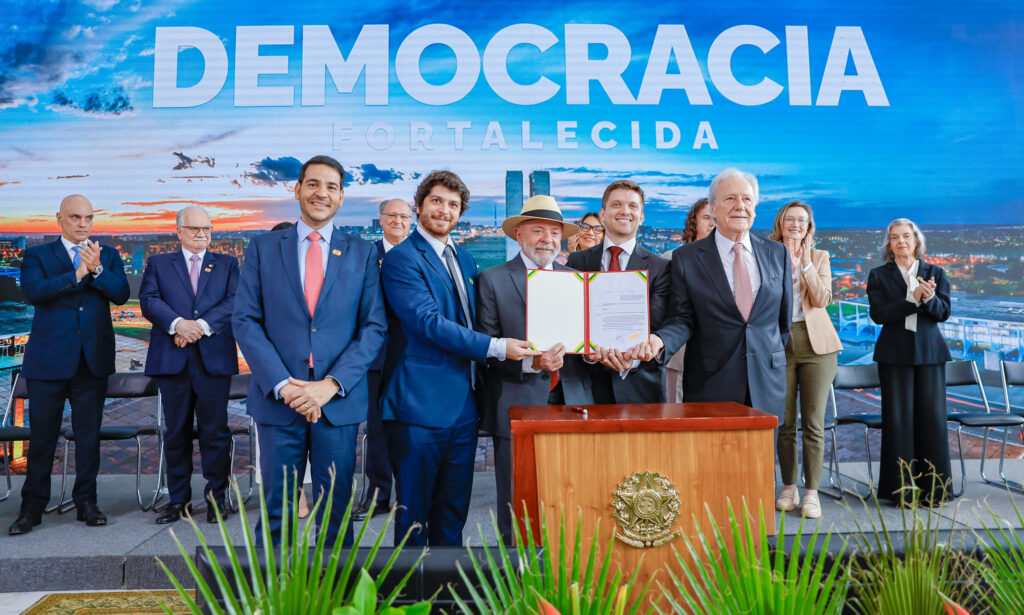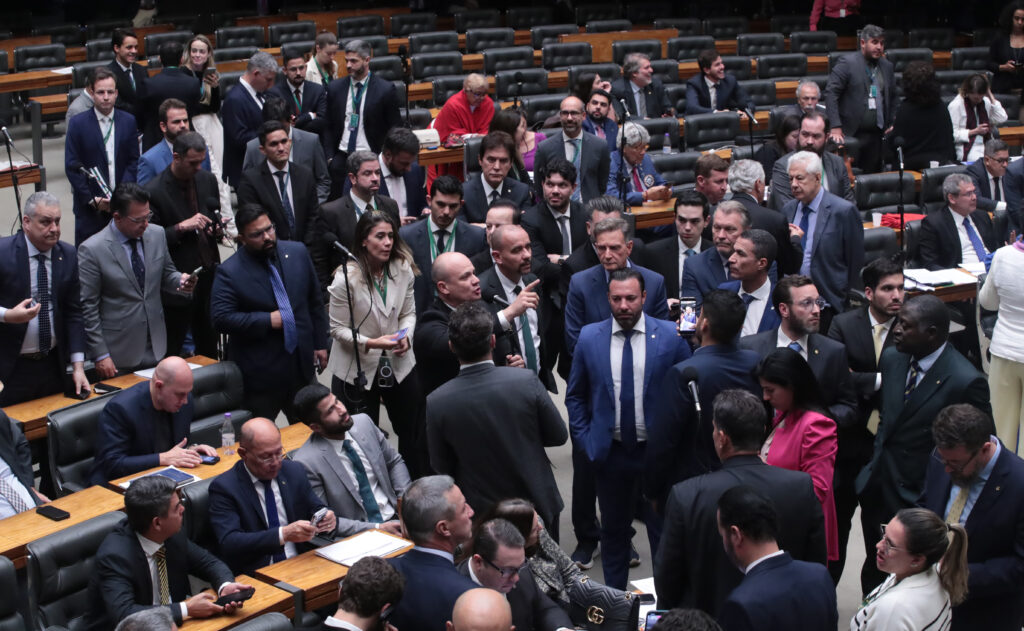São Paulo, Brazil — Jair Bolsonaro, Brazil’s former president who was sentenced to 27 years and three months in prison for a failed coup plot, began serving his jail-time on Tuesday.
He has been detained inside the Federal Police headquarters in Brasília since Saturday after allegedly trying to remove his ankle monitor while on house arrest.
Bolsonaro was sentenced in September by the country’s Supreme Court for participating in an attempt to retain power after he lost the 2022 election to President Luiz Inácio Lula da Silva.
The plot included plans to assassinate Lula, his Vice President Geraldo Alckmin, and Supreme Court Justice Alexandre de Moraes.
The detention marks the first time a former Brazilian president has been imprisoned for attempting to disrupt the country’s democracy, which was reinstated in 1988 following a 21-year military dictatorship.
It also marks the first time former military officials have been convicted for attempting to overthrow the country’s democracy.
Augusto Heleno, a 78-year-old army general and former Secretary of Institutional Security, was sentenced to 21 years in prison and Paulo Sergio Nogueira, also an army general and the former Minister of Defense, received 19 years behind bars.
Both military officials were reportedly sent to a prison inside the Comando Militar do Planalto (Planalto Military Command), a military outpost in Brasília. According to Brazil’s military law, the officials could not be sent to civilian prisons.
Although Bolsonaro served years ago as a captain in the military, his presidential status reportedly afforded him a special, 12-square foot cell equipped with air conditioning, a television and a minibar at the Federal Police headquarters.
Bolsonaro’s imprisonment signals a challenge for Brazil’s right-wing as it prepares to fill a power vacuum ahead of elections in October 2026. A charismatic and polarizing figure, Bolsonaro had been the movement’s leader for nearly a decade.
“He remains an important political figure in the country,” said Cristiano Noronha, a political scientist and vice president of political analysis firm Arko Device. “I don’t believe that the arrest necessarily changes anything about that. In fact, it ends up contributing to further inflaming tempers,” he told Brazil Reports.
He added that there have already been “some small demonstrations between supporters of the former president and opposition members in front of the Federal Police headquarters.”
“Obviously, this ends up further inflaming tempers, but it doesn’t substantially change the support the former president has, because this is, let’s say, a highly predictable process; everyone expected that this would happen,” said the analyst.
On Saturday, a group of Bolsonaro supporters gathered in front of the Federal Police headquarters donning Brazilian flags and soccer jerseys to protest the detention.

Protesters in front of the Federal Police headquarters after the arrest of former president Jair Bolsonaro. Photo: Valter Campanato/Agência Brasil
For the most part, Bolsonaro’s electoral base has criticized the way the Supreme Court conducted the case against him, saying that it was “persecuting” the former leader.
They point differences between Lula’s case, that was not defined by the Court at first, to Bolsonaro’s, who can no longer appeal.
Lula was arrested in 2018 due to the Lava Jato (carwash) scandal involving corruption cases involving corruption cases with construction companies. He spent 580 days in a Regional Superintendence of the Federal Police in Paraná but had his case overturned in 2021.
Some of Bolsonaro’s allies and supporters said Lula’s case was not firstly directed to the Supreme Court, Brazil’s highest institution in the Judiciary, but began in Paraná’s state system, which gave him appeal possibilities, unlike the former president.
The Court, on the other hand, states that a crime against democracy as big as Bolsonaro’s should be resolved where it stands.
Yuri Sanches, the head of political risk at Atlas Intel, said that Brazil has been going through a process of “hyper-judicialization” that began a decade ago and emerged because neither Congress nor the executive branch could resolve a range of important issues, which in turn ceded more power to the judicial branch to resolve them.
“Regarding the Judiciary becoming a political actor in the affirmation of many figures within the Bolsonaro movement, I believe this stems from a hyper-judicialization of politics that has occurred in the last decade, in recent years,” Sanches told Brazil Reports.
He said the movement led to a “transfer of power” between Brazilian institutions.
“This happened due to several factors. The President of the Republic, a figure in the Executive Branch, has, over time, needed to push through agendas in Congress, obtain approval from both houses, and transfer power—in the form of budgetary control, granting more autonomy in budget management—to Congress, specifically the Chamber of Deputies and the Senate. This has led to a more and more complete transfer of power,” he said.
Featured image: Former President Jair Bolsonaro surrounded by police officers in Brasília.
Author: Fabio Rodrigues-Pozzebom/Agência Brasil
Source: Agência Brasil


